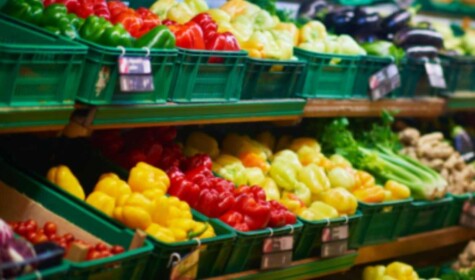Perfect vegetables, cheap meat, and easy-meals make up the modern consumer’s supposed shopping list. Throw in a fridge full of discounts, deals and feel-good factors and a supermarket’s got itself a happy shopper. At the end of the day, it is the dogma of the global food industry that the customer is always right. At least that’s what we’ve been led to believe…
So are consumers to blame when it comes to systemic issues concerning production and waste across the food chain? Can we blame shoppers for the true cost of cheap meat, for problems relating to changing land use, or even the reduction in bee populations due to the overuse of harmful pesticides? Furthermore, are we encouraging a global food waste issue each time we fill our trollies?
One third of the world’s food is thrown away each year across the food supply chain
….literally from farm to fork. When you include the additional costs this wastage has to farmers and the environment, you can’t help but applaud the supermarkets for supplying their customers with value for money. If the social, environmental and economic costs of producing uniform fresh produce, for example, were placed alongside their shop floor value, the price difference would be gargantuan. Tomatoes supposedly too big or too small to be sold, lie to rot in fields; the cost of the labour, chemicals, fuel, water and land used to grow food that will never be eaten are hidden from the eye of the loyal shopper. Yet this area of waste is not what supermarkets are aiming to help tackle. It is the food waste that their consumers cause that is of priority to them, rather than their own.
Initiatives such as Love Food Hate Waste have done a fantastic job of educating the public on the issue of household waste, but this is only the tip of the iceberg. Supermarkets have jumped at the chance to produce recipes for making use of leftovers and leaflets on how best to store your food. Likewise, some supermarkets have started diverting their surplus and unsellable stock to food redistribution charities such as FareShare and FoodCycle to help tackle the issue of ‘food poverty’. Some have even begun sending their left over bread to feed animals. All of these waste management practices do of course keep ‘inedible’ food in circulation and absolutely should be promoted, however as Tim Lang recently suggested food waste is the symptom, not the problem.
Accountability for waste
Food waste is, in part, the result of the operational methods of supermarkets. Food waste therefore needs to be tackled at its roots, rather than merely hiding the issue with consumer-friendly methods of reducing personal waste. If we are to truly start reversing how much food the world wastes, supermarkets must be made accountable for the way they deal with food not only leaving the store, but also arriving. This is not to say that people shouldn’t store their food properly, or make use of leftovers – these are simple economic sensibilities. But if we are going to achieve significant change, the spotlight needs to be taken off the consumer, in order to highlight what’s going on behind supermarkets’ back doors.
As was seen in the aftermath of the horsemeat scandal, it was the demand for cheap meat from consumers that was blamed as the reason why supermarkets were having to continually source meat from further afield, through ever convoluted supply chains. Yet the proliferation of cheap meat, caused by intensive livestock production, is something that has been bestowed upon consumers, as their shopping habits have become evermore restricted to a handful of supermarkets rather than independent butchers and food retailers. Last year we saw how the chronic race to the bottom between supermarkets led to dairy producers being paid less than cost value for a pint of milk. These methods of sales are not something the consumer has demanded. Rather, it is the aggressive marketing campaigns of the supermarkets that insinuate these behavior patterns and in turn, use them to their advantage.
Happy shoppers?
The push for uniform vegetables is yet another example of consumer ideals that are bestowed upon the ‘happy’ shopper. If you lead people to believe that a curvy carrot is inferior to a straight one, despite serving the same purpose when diced and added to a stew, there will of course become a demand for these products. However, supermarkets should be playing a more responsible role in the food system that they so globally dominate at present, especially this year where unpredictable weather patterns have left farmers with less than optimum harvest yields. Promoting produce of a variety of shapes and sizes, working effectively with farmers to ensure they aren’t left in the lurch, and admitting accountability for pre-shop floor food waste are a few things these retail giants could start with to reduce our food chains impact on the world.





